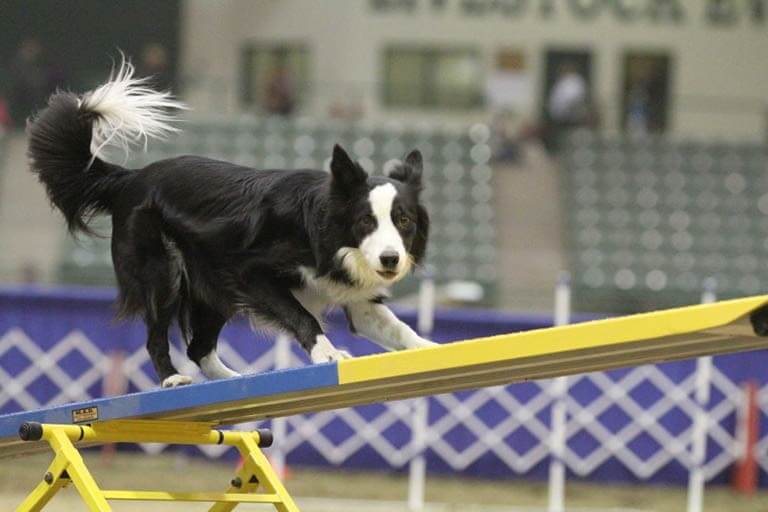Dog Sports – How Do We Respond When Things Go Wrong?
When things don’t go according to plan, it can be tempting to seek comfort in the fact that we tried our very best to do the right thing. “A” for effort, we tell ourselves. For the most part, however, being good enough in the dog game isn’t generally good enough. It takes more than “trying hard” to succeed in the show ring, and nobody has ever succeeded in the sport simply by being motivated to win. Learning to successfully navigate losses as well as wins is essential when long-term goals are on the line. So, does making a claim to have had the best of intentions absolve us of our responsibilities when things go wrong?
How Do We Respond When Things Go Wrong – Don’t Make Excuses
Let’s face it, losers tend to make excuses. When exhibitors find their dog out of the ribbons—or leave the ring with a red, yellow or white ribbon—it can be easy to focus on the things that are someone else’s responsibility, such as judging procedures, ring conditions, or a fellow exhibitor’s behavior. For example, when a professional handler’s dog wins, it’s easy to blame it on “politics.” When the show grounds are a muddy mess, why not just criticize the show chair or the superintendent? And when the dog on the other end of the lead misbehaves in the ring, surely, it’s okay to accuse the rambunctious child sitting ringside. Right? Well, no. Not ever. Those reactions are merely poor excuses made in response to our own limitations or lack of preparedness. Instead of using deflection, consider incorporating ways to learn from the experience. Remember, deflecting blame achieves nothing. It doesn’t compensate for a failure to practice and it cannot explain a lack of conditioning. Take every loss as a reason to start training smarter.
How Do We Respond When Things Go Wrong – Take Accountability
When we take accountability for things that don’t go our way, we move beyond simply having had the best of intentions; we assume responsibility for the results of our actions (or inactions) in the ring—and we move closer to our own greatness.
There’s nothing like showing an inexperienced puppy or a bitch in season to remind us that we are not in control. Feeling a bit frazzled, after all, is part and parcel of showing dogs. (Even the most experienced handlers are tested by their charges from time to time, although their training challenges are usually resolved at home and not in the show ring.) When we take accountability for things that don’t go our way, we move beyond simply having had the best of intentions; we assume responsibility for the results of our actions (or inactions) in the ring—and we move closer to our own greatness. By becoming responsible for the results that are determined in the show ring, we tap into the source of our own power. Being fourth out of four with an owner-handled dog can be a game-changer, especially if we’re able to identify why we came up short and what we can do to improve our odds next time. Learning to win and lose with grace allows us to find our self-respect too.
Develop Strategies
What’s lacking for many novices are strategies that can support those good intentions. These methods include identifying the source of our failures (lack of training?), reviewing our expectations (realistic goals?), accepting feedback (criticism as well as encouragement), seeking support (from breeders, mentors, and coaches), prioritizing (short-term planning), and establishing deadlines (a great way to realize our dreams).
For exhibitors who have only recently started showing dogs, the experience of being in the ring can be a real-world struggle. So many things can appear to be out of our control that it’s easy to consider staying home next time. But quitting isn’t an option if we’ve already established goals for ourselves and our dogs. What’s lacking for many novices are strategies that can support those good intentions. These methods include identifying the source of our failures (lack of training?), reviewing our expectations (realistic goals?), accepting feedback (criticism as well as encouragement), seeking support (from breeders, mentors, and coaches), prioritizing (short-term planning), and establishing deadlines (a great way to realize our dreams). By developing strategies for becoming successful, we move beyond simply hoping and dreaming that things will go our way. Strategizing provides the essential tools that are tailor-made for ourselves and for our dogs. Formulating a solid strategy is the surest way to overcome obstacles and achieve our objectives.
How Do We Respond When Things Go Wrong – ‘Adulting’ Is Alright
Our journey “in dogs” often reflects our own life’s journey. Novice exhibitors can be like children in need of parents who can explain mundane tasks. Owner handlers are akin to middle schoolers who are just beginning to understand their capabilities (and limitations). Competitors in the National Owner-Handled Series are similar to teenagers and young adults who go to school, do chores, and have part-time jobs. And owner handlers wishing to move up in the rankings are like professionals within any community that supports committed individuals and rewards high achievement. In many ways, our experience as owner handlers is a lot like “adulting,” which in many ways is the opposite of “parenting.” Today’s owner handlers can even be likened to millennials who are navigating a world that’s vastly different from that of their baby boomer parents or grandparents. All exhibitors, however, share a common love of dogs and a desire to do what’s right on their behalf. In this regard, everyone has the best of intentions.
Aiming for a positive outcome is fundamental to our sport, but having good intentions alone isn’t a sure path to victory—particularly when everything seems to be going wrong. In times of trouble, it can be helpful to stop making excuses, become accountable, strategize, and seek the assistance of someone who understands where you are and wants to help you get to where you want to be.
The Best of Intentions
How Do We Respond When Things Go Wrong?
By Dan Sayers









